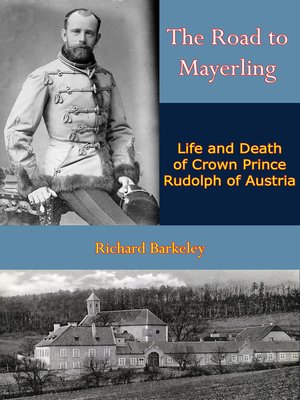
Sign up to save your library
With an OverDrive account, you can save your favorite libraries for at-a-glance information about availability. Find out more about OverDrive accounts.
Find this title in Libby, the library reading app by OverDrive.



Search for a digital library with this title
Title found at these libraries:
| Library Name | Distance |
|---|---|
| Loading... |
THE mysterious circumstances of the death of the Austrian Crown Prince Rudolph on January 30th, 1889, at the hunting-lodge of Mayerling have never ceased to provoke speculation. Book, film and stage, and lately television, have dealt with his untimely end, but while concentrating attention on the manner and possible reason for his death, not sufficient consideration has been devoted to his life. Rudolph's death can only be satisfactorily explained if the whole of his life, and not only its last few weeks or months, is considered. The most talented Prince the House of Hapsburg had produced for centuries, a serious political thinker, a gifted writer—he did not die merely on account of an unhappy love affair, as has been so frequently asserted. His death was bound up with the fate of the Empire—the Empire which was not only the splendour of the Imperial Court and the gaiety of Vienna and Budapest, but also a heritage of increasingly intractable problems which he would have had to solve. The usual conflict between monarch and heir was in this case enormously magnified by irreconcilable differences. Francis Joseph was as conservative as Rudolph was progressive, and while the Emperor was obstinately opposed to any change until it was forced upon him, the Crown Prince felt the urgent necessity of carrying out the most radical reforms while there was still time. Much has been written and still more said of Rudolph as a philanderer. Most of these reports are pure invention. Admittedly he was not a model husband, but women were less important in his life than politics. In fact politics became too important. With rare prescience he divined that many of Austria's problems which could then be solved would be beyond solution by the time he became Emperor. Life grew unbearable when he saw how his father in his pedestrian way endangered the future of the Empire and of the Hapsburgs. The road to Mayerling started in the Imperial Palace in Vienna.







